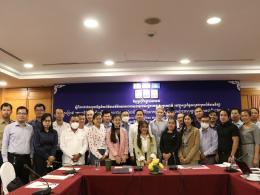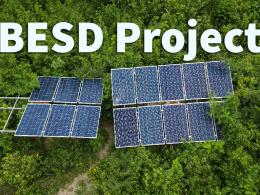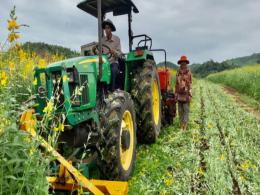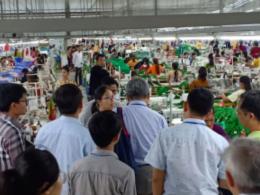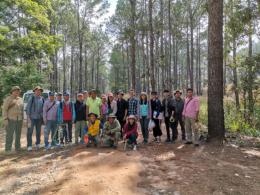Scale Pilots to Promote Uptake of Electric Cooking in Cambodia
Background
Accessing reliable and clean cooking fuels in developing countries is a persistent obstacle for poor households. 80% of the rural population in Cambodia does not have access to clean cooking (ESMAP, 2017). Most rural Cambodians cook with wood (77%) and 6% cook with charcoal, spending approximately 1.5 hours a day on cooking. Cooking on traditional biomass stoves not only contributes to deforestation, local natural resource degradation and increased greenhouse gas emissions, but also has severe negative impacts on health through the smoke that pollutes households and the ambient air. For 40 years, the sector has been working on improved cookstoves to stop people from cooking with biomass.
However, low level of modern cooking services adopted in Cambodia suggests it is time to introduce a new technology and solutions to change behaviour, offering rural Cambodians a path away from cooking with firewood or charcoal and mitigate the negative impacts on health, forests and air quality. With this project iDE and its partners will build upon previous project activity to continue testing the potential of efficient electric cooking devices in transitioning away from biomass fuels in rural and peri-urban Cambodia.
Overall Objective
Launch scale pilots to accelerate the uptake of efficient electric cooking appliances to mitigate climate impacts through avoided deforestation and reduced emissions
Specific Objectives
1. Continue market testing and scaling adoption of electric cooking in Cambodia, testing multiple behavior strategies which successfully nudge customers towards electric cooking;
2. Measure the extent of climate benefits (avoided deforestation, quantifying the change in emissions from the baseline biomass burning cooking to electric cookstoves); and
3. Understand the potential for a scaled adoption of electric stoves to generate carbon credits to benefit the adopters.
Approach
Building on previous experience, we will introduce a new, cleaner, more efficient electric cookstove technology that already has some traction; assess financing needs and providing flexible options that meet these needs. Three main organizations based in Cambodia will manage and implement this pilot project:
1) iDE Cambodia will lead the project, coordinate activities and develop market test cycles to make efficient electric cookstoves accessible, affordable and desirable to guarantee rapid uptake in Cambodia. iDE will utilize its existing last-mile distribution network and sales force to sell electric cooking products that benefit its client base. iDE will be also in charge of conducting the baseline and end line evaluation
2) ATEC has developed a proprietary PayGo (pay as you go) technology for the electric cookstoves, these will be marketed to customers during the project
3) Nexus for Development will assess the appropriateness of the PayGo system, ideate financing alternatives if PayGo is not viable, and quantify the change in GHG emissions by transitioning from conventional stove to efficient, on- grid electric stoves in Cambodia
Outputs and Key Activities
| Result | Key Activities |
|---|---|
|
|
Knowledge Products
• Carbon Credits Policy Brief • Promotional Marketing Materials • Dissemination Workshop • Go-to-Market Strategy Recommendations
| Timeframe | Total Budget | Partners | Location |
|---|---|---|---|
|
June 2021–July 2022 |
USD 118,251 (Total) CCCA (98,960) |
iDE Cambodia |
Phnom Penh |


